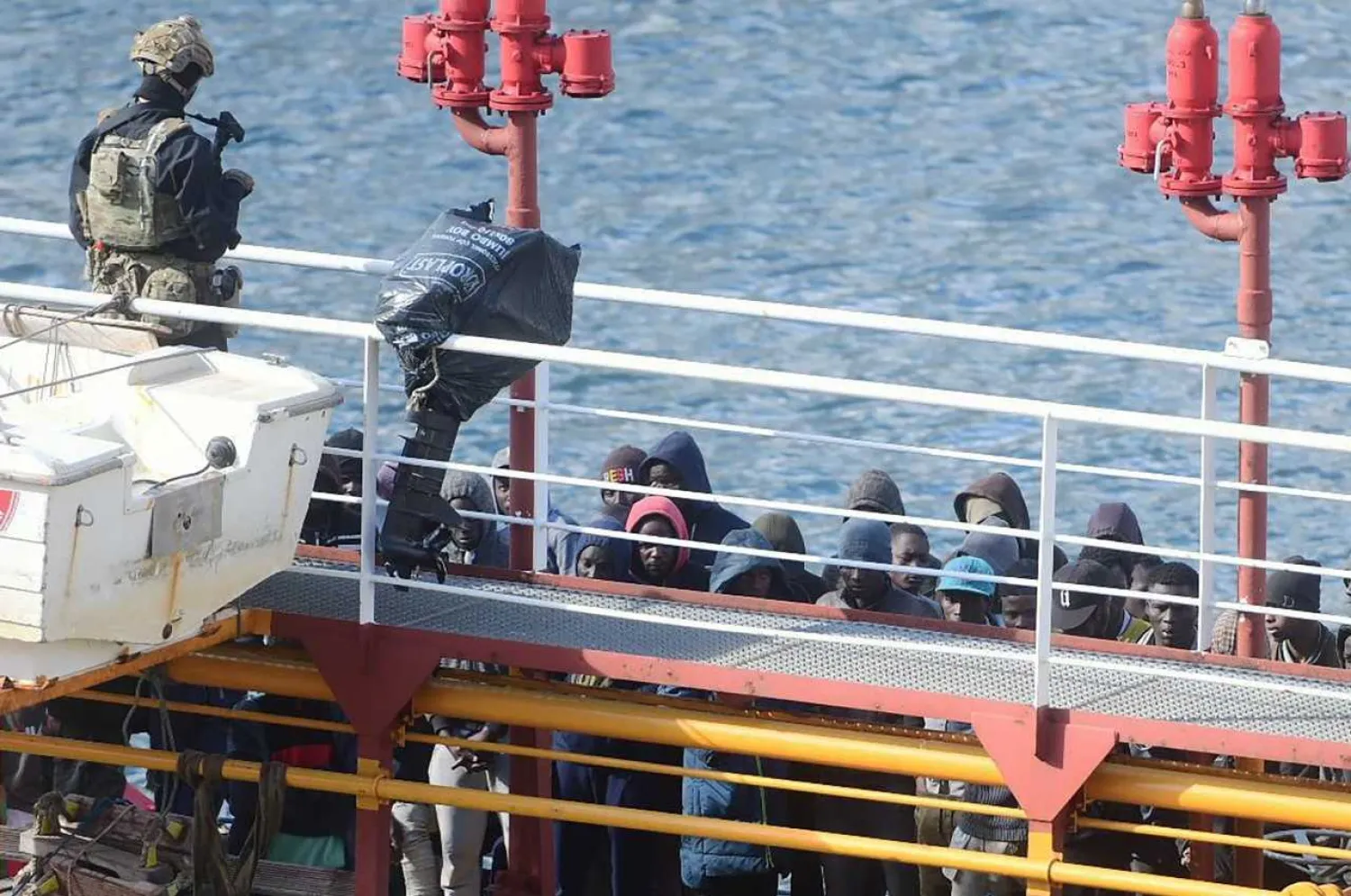A tanker that was hijacked by rescued migrants off Libya docked in Malta on Thursday after a Maltese special operations team boarded the vessel and returned control to the captain.
The Palau-flagged tanker El Hiblu I had picked up the 108 migrants, including women and children, in the Mediterranean Sea on Tuesday evening and then headed back to Tripoli.
But six nautical miles from port, the ship suddenly changed course and headed north toward Europe.
Italy's far-right Interior Minister Matteo Salvini said Wednesday the vessel had been hijacked and vowed that the migrants would not be allowed to disembark in Italy.
The 52-meter tanker was about 30 nautical miles from Malta when the Armed Forces of Malta (AFM) established communications with the captain.
"The captain repeatedly stated that he was not in control of the vessel and that he and his crew were being forced and threatened by a number of migrants to proceed to Malta," the AFM said in a statement on Thursday morning.
"AFM Patrol Vessel P21 stopped the tanker from entering the Maltese territorial waters.
"An AFM Special Operations Unit team was dispatched to board and secure the vessel in order to hand over control of the ship to the captain."
It said the team was backed up by a patrol vessel, two fast interceptor craft and a helicopter.
Escorted by the Maltese navy, the tanker arrived in the port of Valetta around 8:30am.
Journalists saw migrants suspected of having hijacked the tanker being handcuffed by Malta’s police and put in a prison van.
A private group that operates a rescue ship and monitors how governments treat migrants, Mediterranea, urged compassion for the group on the vessel and said it hoped European countries would act "in the name of fundamental rights, remembering that we are dealing with human beings fleeing hell."









